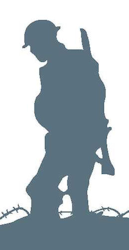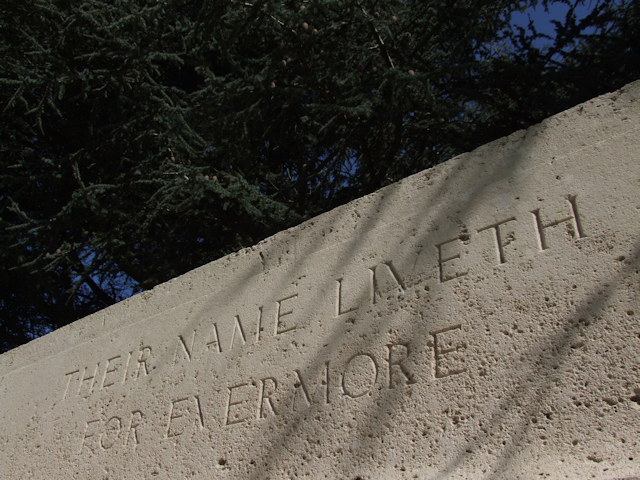Name
Henry John Moles
2 May 1898
Conflict
First World War
Date of Death / Age
23/03/1918
19
Rank, Service Number & Service Details
Corporal
41415
Lincolnshire Regiment
2nd/5th Bn.
Awards: Service Medals/Honour Awards
1914 /15 Star, British War and Victory medals
Cemetery/Memorial: Name/Reference/Country
QUEANT ROAD CEMETERY, BUISSY
Noreuil German Cem. Mem. 3.
France
Headstone Inscription
HE DIED THAT WE MIGHT LIVE IN PEACE
UK & Other Memorials
Hemel Hempstead Town Memorial, Hoddesdon and Rye Park Town Memorial, Hoddesdon, St Catherine and St Paul’s Church Memorial, Hoddesdon, Hoddesdon Congregational Church Memorial, Not on the Hitchin Memorial
Pre War
Henry John Moles was born on 2 May 1898 in Hitchin. Herts. the son of John William and Susan Moles (née Brownsmith) and baptised on 11 January 1899 at St Agnes Church, Kennington, Southwark. (N.B. his baptismal name was given as John Henry and the address given was 45 Royal Terraces). He was one of five children. At that time his father was a police constable.
Henry's father had been a baker but joined the Police Force and was posted to the Hertfordshire Constabulary at Hitchin. On the 1901 Census the family were living in Police Station Yard in Bancroft, Hitchin, where his father was a Police Constable. Both parents were present: John (32) and Susan (33). Their children were Edith Ellen (4), Harry (Henry John, 3) and Leonard (1).
By the 1911 Census his father had been promoted to Sergeant and they had moved to 6 Trinity Road, Ware.
Some years later his father was promoted again to Superintendent and the family moved to Rye Road, Hoddesdon. His mother's address on pension records was 30 Lord Street, Hoddesdon, Herts.
By 1911 the family were living at 6 Trinity Road, Ware, Herts. Present were both parents, and John had been promoted to a police sergeant in the Hitch Constabulary. The census recorded they had been married for 15 years with 5 children, all living. All the children listed above were present, but Harry was now 12 and listed as Henry John Moles. New siblings were Sidney J (9) and presumably a daughter Mary M (8) but the census does not confirm that.
Officially Henry was recorded as born in Hitchin, Herts. and was living in Hemel Hempstead, Herts. when he enlisted in Hertford.
Wartime Service
His service record numbers are confusing: his medal roll index card lists him as a Corporal numbered 16688, Private 11892 in the West Riding Regiment (poss 8th) and then Corporal 41415 Lincolnshire Regiment. His service medal and award rolls list him as Corporal 16688, 8591 13th Training Reserve Battalion, 41415 2/5th Lincolnshire Regiment. The SDITGW database incorrectly give the number as 11592. The text below the numbers we can be certain of, but the other number may still be valid.
Henry was one of the first volunteers when war was declared and he went to Hertford in August 1914 to enlist with the Duke of Wellington's West Riding Regiment (Reg. No. 11892) (N.B. his father was born in Guisborough, Yorkshire). However, he was only 16 years and three months old and must have lied about his age. Government policy was that you had to be 18 to sign up and 19 to fight overseas. He was accepted as fit for service and posted to the 8th Battalion, West Riding Regiment for basic training at Belton Park in Grantham, Lincs. In September 1915 he was sent to Gallipoli, arriving at Suvla Bay on 10 September (date given on medal index card).
The Battalion were in the Balkans for a relatively short time and left in December, sailing to Cairo, Egypt where they were engaged on defence duties on the Suez Canal. They sailed for France in July 1916.
The 8th Battalion was disbanded in France in February 1918 and Henry was transferred to the 2/5th Battalion, Lincolnshire Regiment at Ambrines, near Arras. And that is probably when he received the number 41415.
In March 1918, the Germans launched a series of attacks along the Western Front, sometimes known as the Spring Offensive, which began on 21 March at 4.40 am and hit targets over 150 square miles with over one million shells being fired in five hours. This resulted in over 17,000 allied casualties. By 25 March 2/5th Battalion, Lincolnshire Regiment had lost over 50% of its strength killed, wounded or missing.
Henry was wounded during this onslaught and he must have been posted as missing. His father formerly enquired about his fate on 2 August 1918, via the British Red Cross & Order of St John Enquiry List, Wounded & Missing, 1914-1919, presumably in the hope that he was alive and a prisoner of war. The reply was negative, and his death of wounds was presumed as 23 March 1918. The Register of Soldiers' Effects notes that his death at Bullecourt was officially accepted.
It is likely that he was buried by the Germans in Noreuil German Cemetery with other allied soldiers, but the graves were lost following further battles in the area. His name is commemorated with eight other British soldiers on a special memorial in Queant Road Cemetery, Buissy, France.
Additional Information
Acknowledgments
Brenda Palmer
Malcolm Lennox, www.hemelheroes.com., www.dacorumheritage.co.uk.



